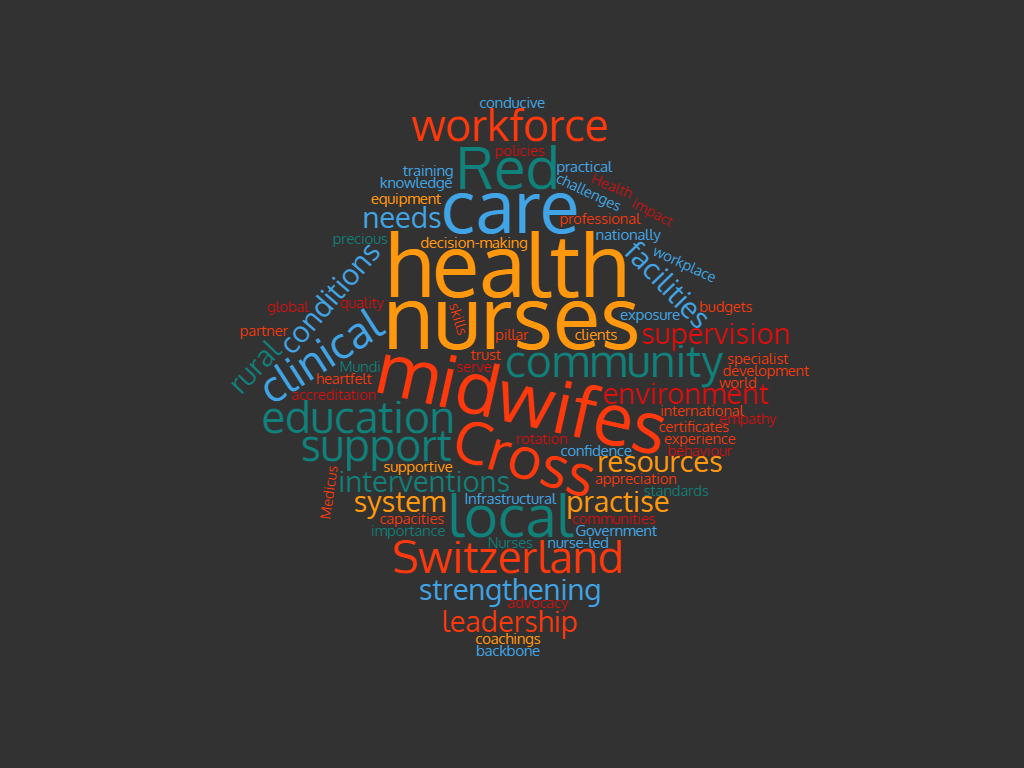In the international cooperation, the Swiss Red Cross supports the local partner organisations in improving the working conditions and environment for nurses and midwifes in selected programme countries. Next to volunteers and community health workers, nurses and midwifes are the first point of contact for primary care in rural areas. Embedded in a conducive structural environment, their presence, their knowledge and skills, their decision-making capacities, their empathy and behaviour are crucial in contributing to the health of the individuals and a healthy community, which they serve, and to the trust, a health system enjoys.
Depending on the local contexts and needs, the Swiss Red Cross supported programmes try to improve the situation of nurses and midwifes through different interventions. Infrastructural and equipment support to rural health facilities, where Government budgets only scarcely reach, allow to practise with more space, privacy and better quality care (see case story Nepal).
Using workplace rotation and clinical trainings at higher secondary facilities is another approach highlighted in the case story from Pakistan. The training and development of specialist nurses, such as for example community nurses in Belarus, Moldova and Ukraine or eye health nurses in Ghana, is another important pillar of SRC’s support to the nursing workforce. These interventions are not stand-alone. They are embedded in a health system strengthening approach, which includes the local communities and individuals, all relevant local stakeholders and partners.
On-the job coachings and clinical supportive supervision have gained importance in countries, where workforce is trained, but lacks practical experience and confidence (see case story Bangladesh and Pakistan), combined with advocacy that Governments allocate necessary resources to put supervision policies into practise (see case story Laos).
The State of the World’s Nursing Report (WHO, ICN, Nursing Now 2020) highlights the achievements and global challenges in regards to universal education standards, working conditions, clinical exposure and education, nurse-led care, leadership and leadership positions as well as higher education of nurses. Reading through the report, the SRC contribution seems negligible in the vast ocean of unmet needs. Still, the case stories show that the support makes a big difference to the professional life of the individual nurses and midwifes, with a direct impact on their clients’ health.
The Swiss Red Cross joins the other contributors of this bulletin and
Medicus Mundi Switzerland in a heartfelt appreciation of the millions of
nurses and midwifes who care for the world every day. You care-we care for you.










